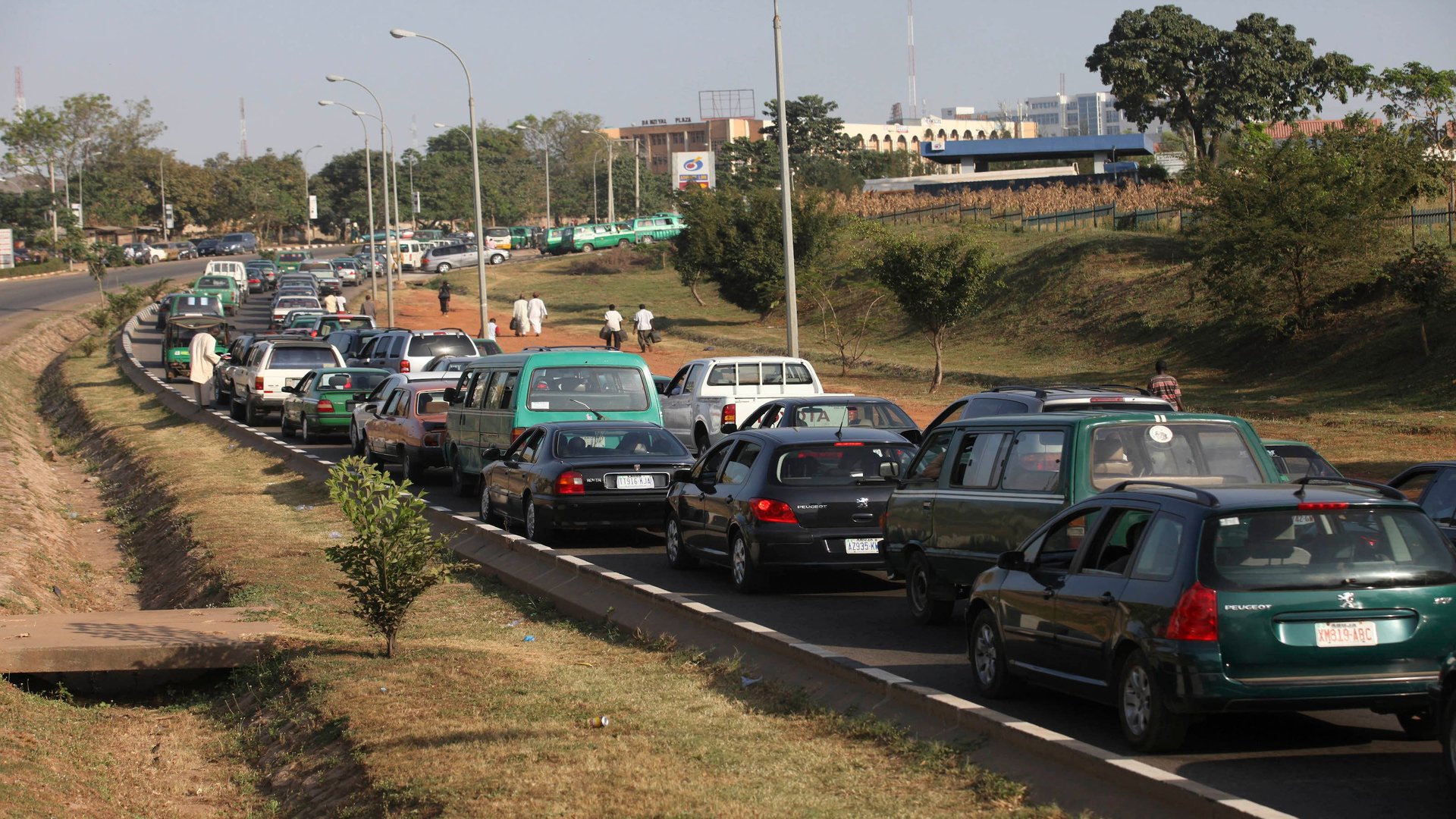Did Goodluck Jonathan’s political price-cut trigger fuel shortages in Nigeria?
Nigeria, Africa’s largest oil producer, has this week been struck by another one of its notorious fuel shortages. With just weeks to go before a contentious presidential election, there are endless lines of cars waiting at gas stations snaring up traffic in big cities like Lagos. Jerry cans of fuel are changing hands on the street for two to three times the usual price.


Nigeria, Africa’s largest oil producer, has this week been struck by another one of its notorious fuel shortages. With just weeks to go before a contentious presidential election, there are endless lines of cars waiting at gas stations snaring up traffic in big cities like Lagos. Jerry cans of fuel are changing hands on the street for two to three times the usual price.
Despite Nigeria being a major oil exporter, it is not unusual for fuel shortages to hit occasionally thanks to a dearth of local refineries. That requires Nigeria to import a lot of its refined product, which can lead to shortages. In this case, however, opposition parties and oil importers say the shortage is the result of one of many cynical political ploys by president Goodluck Jonathan to shore up popularity ahead of the March 28 elections.
Relative to many countries, gas is already fairly cheap in Nigeria thanks to costly petroleum subsidies the government has had in place for decades.
The early part of Jonathan’s administration was spent making the case for removing the subsidies, in order to divert resources into other state needs like infrastructure and healthcare. Jonathan managed to scrap the subsidies in 2012, prompting more than a week of protests that came to be known as Occupy Nigeria. Ordinary Nigerians argued that, in the absence of a social safety net, the fuel subsidy was one of few benefits provided by the government.
In response, subsidies were partially restored weeks later, and this January, the price of fuel was cut to 87 naira ($0.40) per liter from 97 naira, further entrenching the subsidy.
Oil importers say they are suffering from the move. Not only are they required to sell their imports at the target price set by the government. To do so they must purchase US dollars from the Nigerian central bank’s foreign exchange reserves, which has become more expensive thanks to the recent devaluation of the naira and the slightly higher global price of oil as of January.
In response, importers have held back supply as a way to force the government to pay them the difference. The government, meanwhile, has denied that not paying importers has caused the fuel scarcity.
The shortage comes amid a worsening electricity supply, which has forced growing middle class households to run fuel-powered generators through the night to stave off heat and mosquitoes and preserve food.
Scarce fuel makes life even tougher for business owners, most of whom rely on generators to operate. Presidential opposition candidate Muhammadu Buhari slammed Jonathan’s ruling party for doing little to solve the systemic problem.